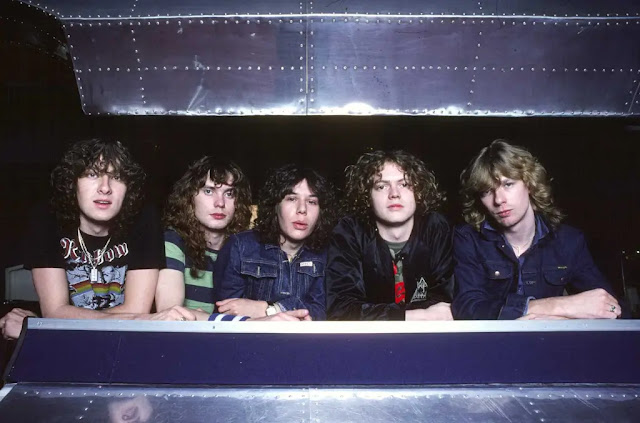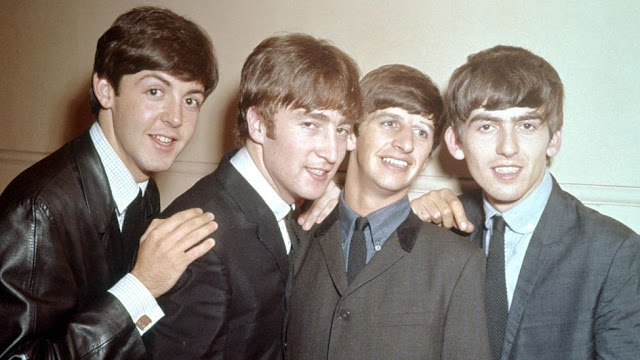The Majesty Unveiled: The Making of Queen's Iconic Album (1973)
The tracklist comprised ten songs, each revealing different facets of the band's musical prowess. From the enchanting melodies of "Keep Yourself Alive" to the emotive storytelling of "Liar" and the haunting ballad "My Fairy King," Queen showcased their versatility and penchant for pushing boundaries. A significant factor that elevated the album was the captivating stage presence and vocal prowess of Freddie Mercury. His exceptional vocal range, theatrical flair, and commanding charisma made every performance a mesmerizing spectacle. It was Freddie's distinctive voice that gave the album its soul, leaving listeners entranced with each note he sang. Brian May's guitar playing became the heartbeat of Queen's music. Utilizing his homemade "Red Special" guitar, May showcased a unique sound characterized by layered harmonies and memorable riffs. His signature style is perfectly exemplified in tracks like "Great King Rat" and "Son and Daughter," where his intricate guitar work takes center stage. Roger Taylor and John Deacon formed a formidable rhythm section, providing a solid foundation for the band's sound. Taylor's thunderous drumming and Deacon's pulsating bass lines locked in seamlessly, creating a driving force behind the album's dynamic tracks, such as "Modern Times Rock 'n' Roll" and "The Night Comes Down." Upon its release on July 13, 1973, Queen's debut album received mixed reviews from critics. While some praised the band's musicality and Mercury's outstanding vocals, others felt the album lacked a cohesive identity. Despite initial skepticism, the album started to gain momentum, and as Queen began to build a reputation as a live act, the record's sales surged. As Queen's debut album slowly began to gain recognition, the band's reputation as a powerhouse live act worked in their favor. Their electrifying performances and Freddie Mercury's magnetic stage presence won over audiences across the UK and beyond. The band's relentless touring schedule helped to create a devoted fan base, and soon, "Queen" started to climb the charts.
One track, in particular, would become the turning point for the album's commercial success: "Keep Yourself Alive." Initially released as the album's lead single in July 1973, it didn't make a significant impact on the charts. However, as Queen's popularity grew, the song was re-released in 1975 and became a Top 40 hit in the UK, finally gaining the recognition it deserved.
The success of the re-released single, coupled with the band's subsequent albums like "Queen II" and "Sheer Heart Attack," helped catapult the original "Queen" album into the spotlight. By the late 1970s, it achieved gold status in the UK and set the stage for Queen's ascension to global stardom in the 1980s.
The album's enduring impact can be seen in the continued adoration and reverence it receives from fans and critics alike. Even decades after its release, songs from "Queen" are staples in the band's live performances and are celebrated as classics. The album's fearless blend of rock, glam, and theatricality foreshadowed the band's later opuses, and its influence can be heard in the works of countless bands and artists that followed.
Queen's self-titled debut album marked the beginning of an extraordinary musical journey. From the humble beginnings of four young musicians with big dreams to becoming one of the most revered and influential bands in history, their legacy remains unparalleled. The album was the foundation upon which Queen built an empire of iconic hits like "Bohemian Rhapsody," "We Will Rock You," "Somebody to Love," and many others that would later define the soundtrack of generations.
Sadly, the world lost the incomparable Freddie Mercury to AIDS-related complications in 1991, but his indelible mark on music and his bandmates' unwavering dedication to his legacy ensured that Queen's music would live on forever. The surviving members of Queen, Brian May and Roger Taylor, continued to honor Freddie's memory by performing with various guest vocalists, most notably Adam Lambert, and keeping the spirit of Queen alive on stages worldwide.
In conclusion, the making of Queen's eponymous debut album in 1973 marked the beginning of a remarkable journey that would forever change the landscape of rock music. With Freddie Mercury's captivating vocals, Brian May's innovative guitar work, John Deacon's steady bass, and Roger Taylor's thunderous drums, the album showcased the band's extraordinary talent and set the stage for their rise to international fame. Though it may not have achieved instant success, "Queen" laid the foundation for a legacy that continues to shine brightly to this day, captivating new generations and ensuring that the majesty of Queen will endure for generations to come.
What a beautifully written account of Queen's debut album and their remarkable journey! You've captured the essence of the band's musical prowess, their unique blend of styles, and the individual contributions of each member perfectly. Queen's self-titled debut album indeed played a crucial role in establishing their musical identity and paving the way for their subsequent successes.
The narrative about the initial mixed reviews, followed by the album gaining momentum through their captivating live performances and the re-release of "Keep Yourself Alive," reflects the resilience and dedication of the band. It's evident that their hard work and dedication paid off, leading them to become one of the most revered and influential bands in the history of rock music.
The legacy of Freddie Mercury and the impact he had on music are beautifully portrayed in your writing. His incredible vocal range, commanding stage presence, and charisma continue to inspire countless artists and music lovers. The fact that Queen's music and influence continue to resonate with fans and artists alike, even after decades, is a testament to their timeless appeal.
Overall, your narrative provides an excellent overview of Queen's debut album and the significance it holds in the band's history and the world of music. It's a fitting tribute to their legacy and their everlasting impact on the music industry. Well done!




Komentarze
Prześlij komentarz